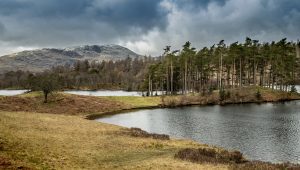The Lake District in the United Kingdom is a haven for outdoor enthusiasts and nature lovers. Its breathtaking landscapes, serene lakes, and majestic mountains beckon adventurers to immerse themselves in the beauty of nature. For those seeking a more immersive camping experience, the idea of wild camping may arise. However, it is essential to understand the legal status of wild camping within the Lake District to ensure responsible and respectful exploration of this cherished region. In this article, we will delve into the legal aspects surrounding wild camping in the Lake District, including guidelines, restrictions, and best practices.
Understanding Wild Camping
Wild camping refers to the act of setting up a temporary camp in the wilderness, away from designated campsites. Unlike traditional campsites, wild camping allows individuals to connect intimately with nature, providing a unique experience of solitude and immersion in the outdoors. While wild camping can be a rewarding experience, it is crucial to approach it with respect for the environment and adhere to local regulations.
Legal Considerations in the Lake District
Wild camping in the Lake District is subject to specific regulations and guidelines. It is essential to be aware of these to ensure a positive and sustainable camping experience while preserving the natural beauty of the area. Here are the key legal considerations:
-
- The Countryside and Rights of Way Act 2000: The Act grants public access to certain areas of land, including mountains, moorlands, heaths, and downs. However, it is important to note that this does not grant an automatic right to camp. The Act specifies that camping is allowed only with the landowner’s permission or on land where there is an established right to camp.
-
- Accessible Areas for Wild Camping: In the Lake District, wild camping is generally discouraged. Most areas fall within the category of Open Access Land, which allows public access but does not grant the right to camp. Therefore, wild camping is typically restricted in popular locations such as valleys, farmland, and near buildings.
-
- Camping Permits and Campsites: To camp legally in the Lake District, it is advisable to use established campsites. Numerous campsites within the region offer facilities and services to cater to different camping needs. By choosing designated campsites, you can enjoy a comfortable camping experience while supporting the local economy.
- Respect for the Environment: While wild camping may be limited in the Lake District, it is crucial to prioritize environmental conservation. Leave No Trace principles should be followed, including leaving campsites as you found them, minimizing disturbance to wildlife, and taking all waste with you.
Best Practices for Responsible Wild Camping
Although wild camping may have restrictions in the Lake District, there are alternative options that still allow you to enjoy the beauty of nature while adhering to the local guidelines. Consider the following best practices:
-
- Choose Designated Campsites: Opt for established campsites in the Lake District that provide the necessary facilities and amenities. This ensures a comfortable camping experience while supporting the local economy and preserving the natural environment.
-
- Seek Permission: If you wish to camp on private land, seek the landowner’s permission in advance. Some landowners may grant permission for responsible wild camping, but it is essential to obtain consent first.
-
- Respect Local Regulations: Familiarize yourself with local regulations and adhere to them. Pay attention to signs, notices, and guidelines provided by local authorities, national parks, or landowners to ensure you are camping responsibly.
- Practice Leave No Trace: Follow the Leave No Trace principles, including packing out all waste, minimizing your impact on the environment, and respecting wildlife and vegetation. Leave your camping spot as you found it, preserving the natural beauty for future visitors.
Conclusion
While wild camping is restricted in many areas of the Lake District, it is crucial to respect the legal status and guidelines to preserve this cherished region’s natural beauty. By understanding the regulations, choosing designated campsites, and following responsible camping practices, you can still enjoy an immersive and unforgettable outdoor experience in the Lake District. Remember to prioritize environmental conservation, respect landowners’ rights, and leave no trace of your presence. By doing so, you can contribute to the long-term sustainability of this magnificent natural landscape




